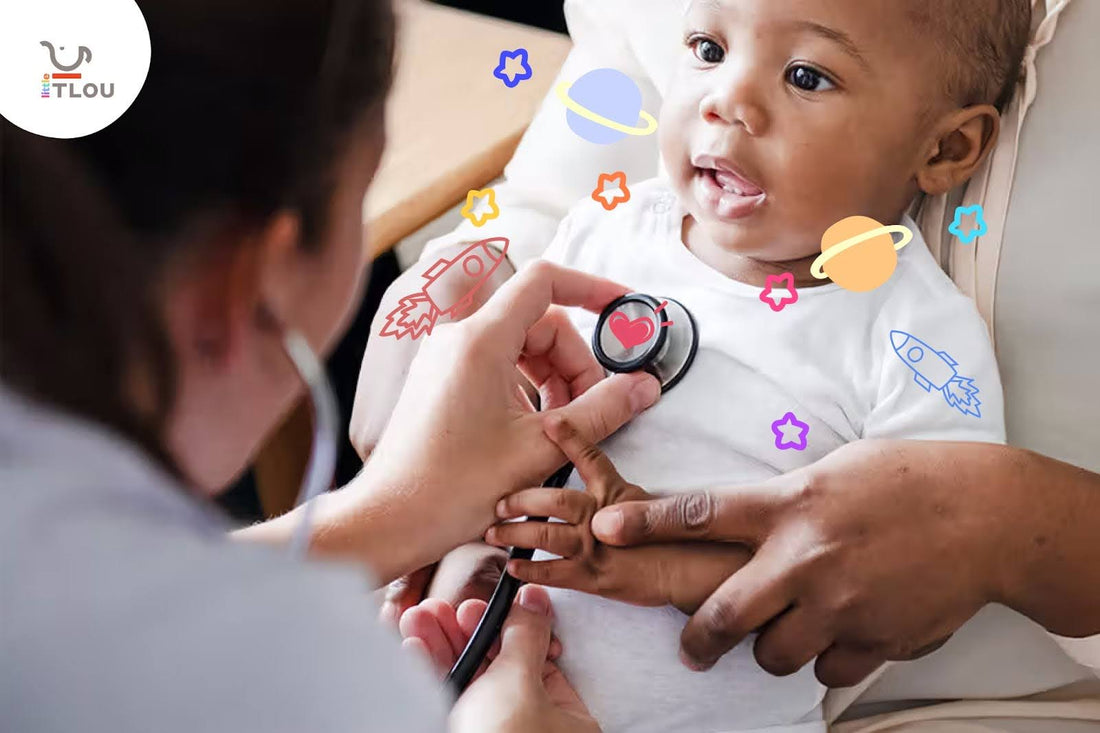New parenthood is full of uncertainty. When you're a first-time parent, it's easy to second-guess every decision you make. One of the most challenging aspects is knowing when to call your paediatrician. This guide will help you navigate some common health concerns and understand when it’s time to seek professional advice.
 1. Fever:
1. Fever:
Handling Fever Based on Age
Infants (Under 3 Months):
Call your paediatrician if your infant has a fever of 38°C or higher. Fevers in very young babies can be a sign of a serious infection.
Babies (3-6 Months):
Contact your paediatrician if your baby has a fever above 38.3°C. Monitor for other symptoms such as irritability, lethargy, or a rash.
Older Babies and Toddlers (6 Months+):
For children over six months, a fever above 39.4°C warrants a call to the paediatrician. Look for additional symptoms like difficulty breathing, persistent crying, or a seizure. Understanding Fever Seizure.

WHAT IS A FEVER SEIZURE?
A fever seizure, also known as a febrile seizure, can occur when a child’s body temperature rises rapidly. These seizures are most common in children between 6 months and 5 years old. During a fever seizure, a child may lose consciousness, shake or jerk limbs, and roll their eyes. Although frightening, fever seizures usually last only a few minutes and do not cause long-term harm. Always inform your paediatrician if your child has a fever seizure.

Persistent vomiting and diarrhea can lead to dehydration, which can be serious in young children.
Call your paediatrician if:
- Vomiting lasts more than 24 hours.
- Diarrhea lasts more than a few days or is accompanied by blood.
- Your child shows signs of dehydration, such as dry mouth, no tears when crying, or reduced Urination.
 3. Colds and Other Respiratory Infections
3. Colds and Other Respiratory Infections
When Are Antibiotics Necessary?
Most colds and respiratory infections are caused by viruses, which do not respond to antibiotics.
However, antibiotics may be necessary if:
- Your child has a bacterial infection, such as strep throat or bacterial pneumonia.
- Symptoms persist for more than 10 days without improvement.
- Your child has a high fever (above 102°F or 38.9°C) for more than a few days. Always consult your paediatrician before administering antibiotics, as misuse can lead to antibiotic resistance.

4. Rash
Rashes can be challenging to diagnose due to their many forms and causes. Important factors to consider include:
- The appearance and location of the rash.
- Whether the rash is accompanied by other symptoms like fever, swelling, or pain
- If the rash spreads rapidly or appears suddenly after taking new medication or food.
Call your paediatrician if the rash:
- Is widespread.
- Is accompanied by a high fever or other severe symptoms.
- Looks like small, red or purple spots that don’t fade when pressed (could indicate a serious condition like meningitis).

5. Other Symptoms Requiring Immediate Attention
Some symptoms are clear indicators that you should call your paediatrician right away:
- Sharp or Constant Belly Pain: This could indicate appendicitis or another serious condition.
- Burning During Urination or Blood in Urine: These can be signs of a urinary tract infection (UTI).
- A Constant Need to Pee: Frequent urination can indicate a UTI or other underlying issue.
- Seizures: Any seizure should be promptly reported to your paediatrician, especially if it’s the first occurrence.
FINAL THOUGHTS
When in doubt, trust your instincts. If something doesn't feel right, it's always better to call your paediatrician. They can provide guidance, reassurance, and care for your child’s health needs. Remember, you know your child best, and your concerns are always valid.

